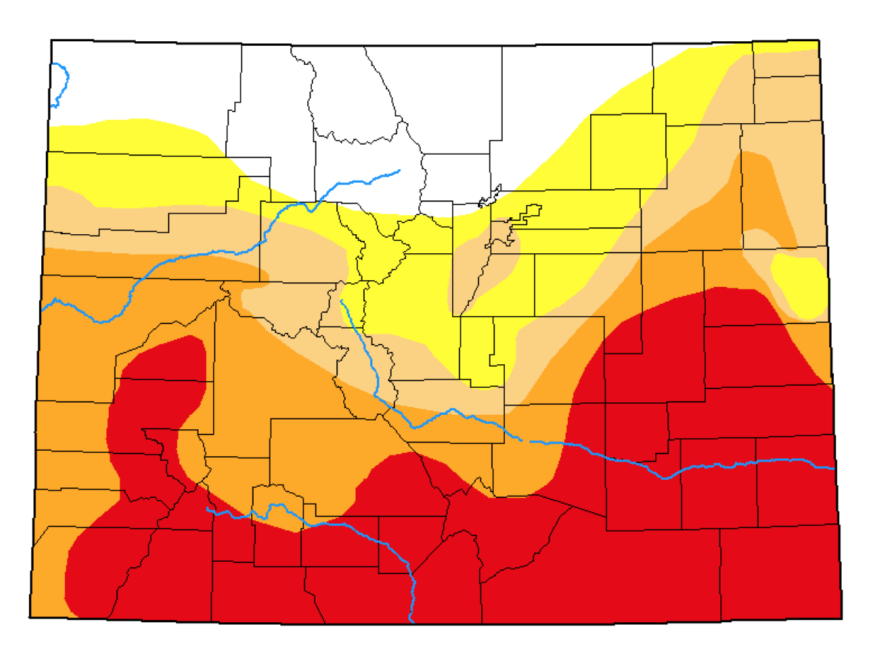The City of Aspen is in a stage one water shortage, citing continued drought conditions. The city will make efforts to reduce water usage by 10%, but water-saving measures for residents are voluntary.
After an exceptionally hot and dry spring, most Pitkin County is in a state of “moderate drought,” with some portions in a state of “severe drought” that applies to much of Western Colorado.
Steve Hunter, a hydrologist with Aspen’s utility office, said officials are keeping tabs on water conditions before they become problematic. Aspen’s main water supply, he said, has no storage and comes from Castle Creek and Maroon Creek watersheds.
“Right now we’re fine,” Hunter said. “But without storage, you don’t have a backup, so you need to be really cognizant of the supply and meeting the demand.”

Long-range forecasts from the National Oceanic and Atmospheric Administration indicate that conditions may not change anytime soon.
“Their models are calling for higher temperatures and below average precipitation,” Hunter said. “We hope the monsoons will still develop. If they do, they probably won’t get us out of these drought conditions but they will help.”
With that in mind, officials will keep tabs on the progress of the drought and what it could mean for available water.
“This drought could go either way,” Hunter said. “It could deteriorate further, and that’s what we’re hoping it doesn’t do. It’s trending that way currently. I think it’s something that people should be aware of because it affects us all - from recreation, to drinking water, to environmental health and conditions.”
More information about the drought and water conservation strategies is available on the city’s website.





